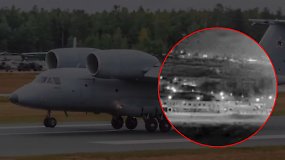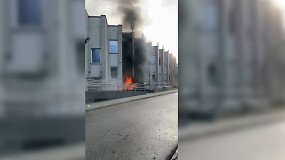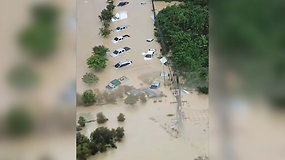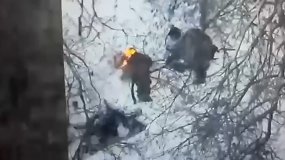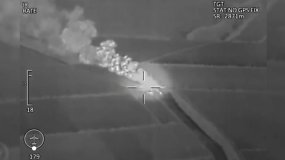Kas atsitiktų, jei lėktuvai išskristų beveik į kosmosą?
Užsienis2023-09-09 10:15
Susijęs straipsnis:
Hey air-travelers! What’s your favorite time during a flight? The take-off, the landing? Or maybe the moment your plane climbs just above the clouds? Ahh, the view is magical. But have you ever wondered what would happen if your plane starts to climb even higher? Well, it's time to get some answers.
The first thing you should know is that the higher a plane flies, the faster it goes, and the cheaper it is. Air molecules are responsible for that. And since flying higher is more relaxed, more economic and safer, wouldn’t it make more sense if an airliner flew even higher? Actually, it’s a bit more complicated than that. Let's figure out!
Other videos you might like:
A Plane Disappeared And Landed 37 Years Later https://www.youtube.com/watch?v=0AoJddnJ6SA&
A Plane Lost Its Roof at 24,000 Feet But Managed to Land https://www.youtube.com/watch?v=r4gRGLsdKv4&
Why No One Can Bring Liquids on a Plane https://www.youtube.com/watch?v=OYWYaN5YlqI&
TIMESTAMPS:
Why planes fly as high as they do 0:31
Why they can’t fly higher 3:07
What the coffin corner is 4:29
Speed limits 5:49
How to save a plane when it’s approaching supersonic speeds 7:49
#planes #aviation #brightside
SUMMARY:
- When a plane flies higher, less air is pushing down from above – therefore the air molecules spread out more, decreasing the air’s density.
- When an aircraft flies through less air molecules, it needs to adjust its speed in order to get enough air and lift itself.
- When the plane travels rapidly at higher altitudes, it consumes less fuel while taking you to your destination faster.
- All the turbulence, clouds, rain and bad weather in general, stay below the plane’s altitude, so we can enjoy a smooth, non-eventful flight.
- Pilots have more time to fix the problem and communicate with the controllers before they make an emergency landing.
- One of the main reasons a jet can’t fly higher is because there won’t be enough air flowing through its engine.
- When the air density decreases, the engine thrust does the same.
- When both the speed of sound and temperature drop in high altitudes, the true airspeed will increase. And at some point, they’ll meet. That’s what pilots call the coffin corner, and it’s as dangerous as it sounds.
- If a plane reaches that point, and it decelerates, it’ll go into a low speed stall. If it goes faster, it’ll end up in a high-speed stall. Neither of those are safe.
- Planes usually fly at around Mach 0.7 or 70% of the speed of sound. If an aircraft goes faster than that, it can cause shockwaves to form.
- If all these events happen in the coffin corner, it’ll break the aircraft into pieces.
- At certain altitudes, an aircraft has a minimum speed limit and a maximum speed limit.
- As the aircraft goes slower, the drag increases. The slower the jet goes, the more thrust it needs to be controlled.
- But the way they save a plane when it’s approaching supersonic speeds is a whole different story – and this is actually a bit more common.
- They slowly bring the thrust back a little bit, and gradually raise the air brakes. Everything is done in slow movements, because a sudden change can cause shockwaves that’ll roll the plane.
Music by Epidemic Sound https://www.epidemicsound.com/
Subscribe to Bright Side : https://goo.gl/rQTJZz
----------------------------------------------------------------------------------------
Our Social Media:
Facebook: https://www.facebook.com/brightside/
Instagram: https://www.instagram.com/brightgram/
5-Minute Crafts Youtube: https://www.goo.gl/8JVmuC
Stock materials (photos, footages and other):
https://www.depositphotos.com
https://www.shutterstock.com
https://www.eastnews.ru
----------------------------------------------------------------------------------------
For more videos and articles visit:
http://www.brightside.me/
Naujausi
Populiariausi
 30:48
30:48
 00:34
00:34
 41:47
41:47
 24:57
24:57
 01:33
01:33
 01:40
01:40
 00:54
00:54
 00:34
00:34
 00:23
00:23
 09:54
09:54
 01:40
01:40
 08:31
08:31
 00:48
00:48
 34:02
34:02
 01:24:50
01:24:50
 02:33
02:33

